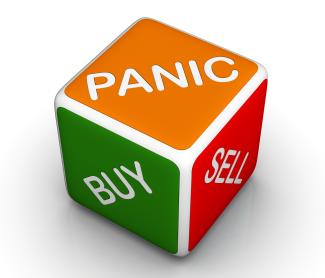
Bear Market Thoughts: 2020 COVID Crisis
Financial markets reacted with unprecedented swiftness to the COVID crisis. The long-awaited “bear” market has finally arrived. (Bear markets are defined by declines of 20% or more.)
Past disease-related market declines have been short-lived – a matter of months. There are reasons to hope that COVID-19’s economic impact may be similarly short-lived given extensive mitigation measures by governments worldwide. Indeed, the market rallied about 20% last week, in keeping with the pattern of record-setting volatility since the crisis began. But we must prepare ourselves for the possibility that we may see further declines in our investments.
I do not make market predictions, for good reason: the future is unknowable. But I will go out on the proverbial limb and say this: This too shall pass!
Those who have worked with GFA know that my strategic asset allocation recommendations are based on an individualized risk profile and designed to buffer portfolios from the full impact of turbulent markets like these. Therefore, the probable best course of action now for my clients (and, frankly, most investors) is to DO NOTHING. As one commentator cleverly put it: “Do not touch your face or your portfolio.”
This is no time to make gut-based decisions. Our brains are wired to act now, think later when under imminent threat (actual or perceived). This “fight or flight” override, while useful when our ancestors lived in constant danger of ambush by large predators, can drive us to act in ways that are counterproductive to our longer-term well-being.
Fear-driven responses like moving your investments to cash after a crash can result in lasting damage to your portfolio. While you may avoid some further losses, things will eventually improve. When they do, the market’s response will be sudden and fast – before things begin to look better to most – and you will miss out on the recovery before you can react.
If the primal part of your brain is still screaming at you to do something, here are some general observations (with the usual disclaimer that this is for educational purposes only and may not be appropriate for your individual circumstances).
Keep Saving
This is an excellent time to participate in a retirement plan like a 401k in which you are making regular investments. You are profiting from an investment technique known as dollar-cost averaging: Your fixed-dollar contributions buy more shares when stocks are “on sale” (like now), fewer as prices rise. This benefits you over the long-term.
If you’re not participating in a plan or have been thinking about raising your contributions, this could be a good time to act.
CAUTION: If you’re concerned about the impact of the looming recession on your work situation and do not have a solid emergency fund (3-6 months of expenses in readily-accessible cash), you might want to stop contributing to your retirement plan and re-direct cash to such a fund.
Rebalance
The bear market has likely lowered your stock allocation below its strategic target, so consider rebalancing your portfolio to move it back into alignment. (If you are invested in a pre-allocated fund like a target retirement fund, this will be done for you automatically.)
Rebalancing will probably require you to add to your current stock allocation. Yes, markets may go down further, but you can take comfort knowing you’ve bought more shares at a nice discount vs. even a few weeks ago. You will profit when the market eventually recovers and goes on to new highs.
But if the thought of buying stocks now makes you queasy, then the “do nothing” advice may be best for you.
Similarly, if you haven’t been investing in stocks or have been thinking about raising your stock allocation, this may be a good time to do so. This is a more complicated question where professional advice is clearly warranted, especially for those in the “retirement red zone” – the ten-year period starting 5 years before retirement.
Here too, if you’re concerned about your work situation and are light on cash, prioritize building an emergency fund.
There are other strategies, notably tax-loss harvesting and Roth conversions, that can be even more rewarding when markets decline. Seek professional guidance to optimize their use.

